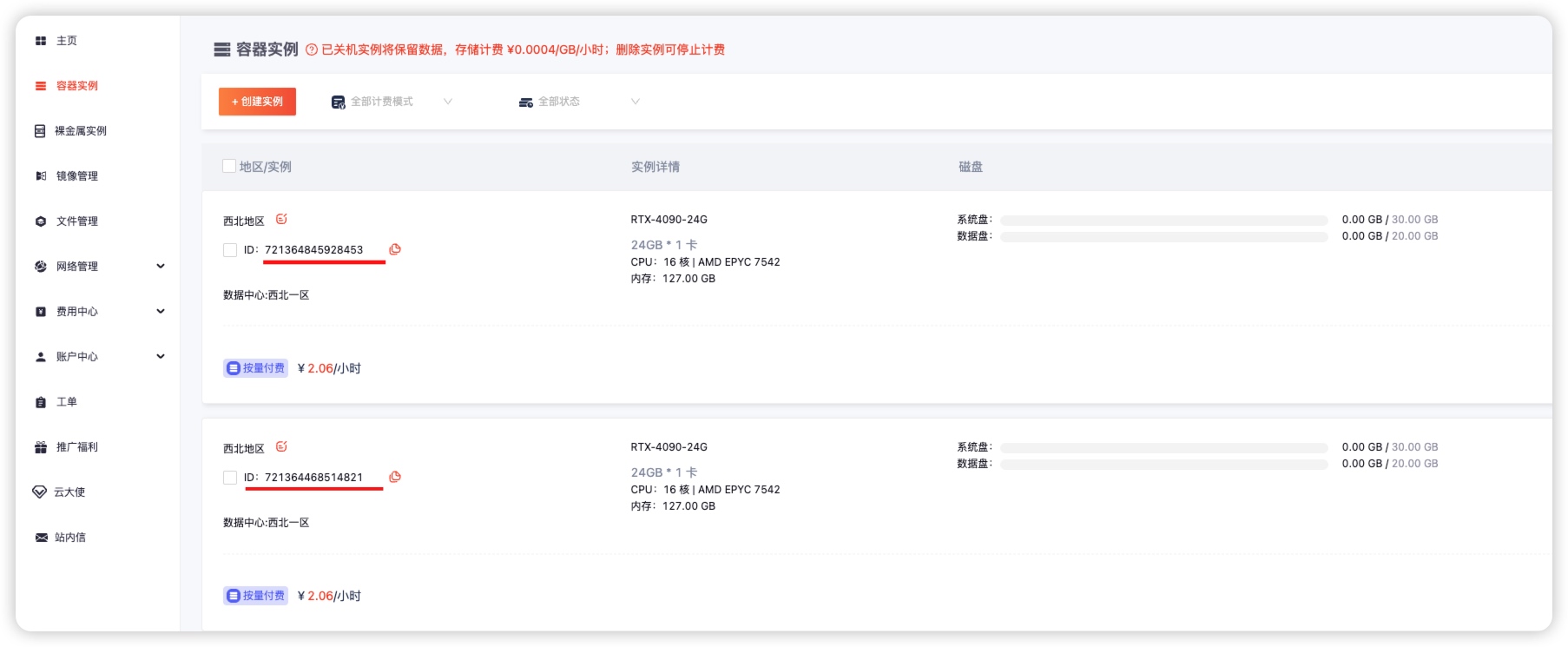Container Instance Interconnect
The container instance interconnect feature is currently available in Northwest Zone 1. By creating instances in this region, you can achieve intranet communication using instance hostnames for data transfer. It will gradually roll out to other regions.
Feature Overview
The container instance interconnect feature is based on system-level networking technology, creating an independent virtual network environment for each user ID. Its main characteristics are:
- Intra-user communication: All container instances created by the same user in supported interconnect regions can communicate with each other via the intranet.
- Inter-user isolation: Different users’ container instances use independent networks to ensure security isolation.
- Convenient communication: Supports direct intranet access using container hostname or instance ID without additional network configuration.
- Data transfer: Can be used for data copy, file sharing, and intranet service calls between instances.
Obtain Instance Hostname or Instance ID
You can get the instance ID and hostname in the following ways:
From inside the instance, use the command below to get the hostname:
~# hostname
gz-ins-721364845928453
From the GPUGEEK Console:
- Go to the instance details page
- View the “Hostname” field under instance information

Communicate via Instance Hostname or Instance ID
In container instances created in Northwest Zone 1, you can directly use other instance hostnames or instance IDs for intranet communication:
# Access instance B from instance A using hostname or instance ID
ping gz-ins-721364845928453
ping 721364845928453
# Connect to other instances via SSH
ssh root@gz-ins-721364845928453
ssh root@721364845928453
# Transfer files with SCP
scp /path/to/file root@gz-ins-721364845928453:/target/path/
scp /path/to/file root@721364845928453:/target/path/
# Sync data using rsync (requires rsync service installed and configured)
rsync -av /local/data/ root@gz-ins-721364845928453:/remote/data/
rsync -av /local/data/ root@721364845928453:/remote/data/